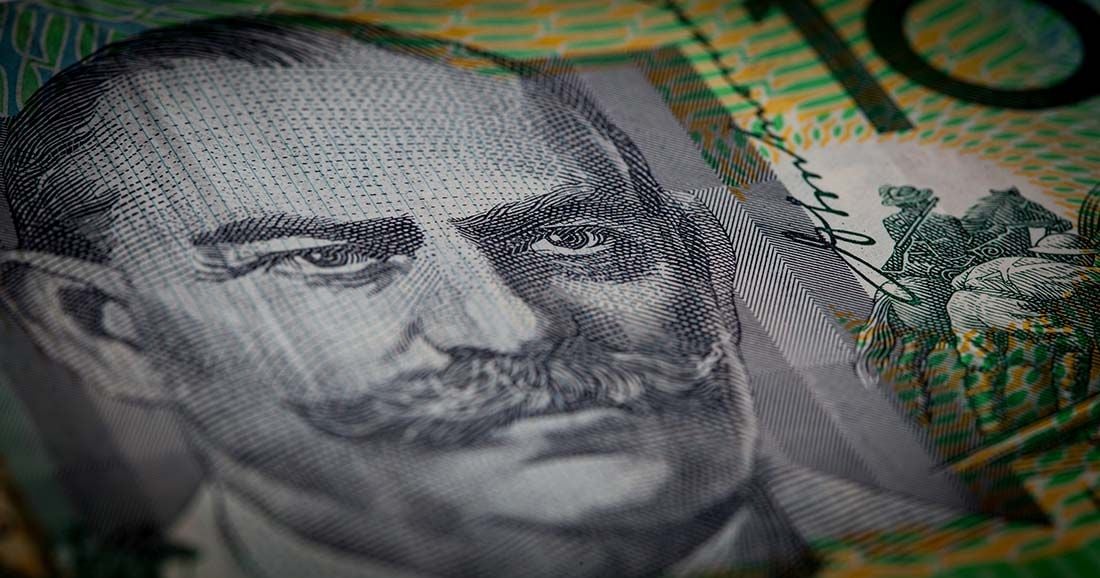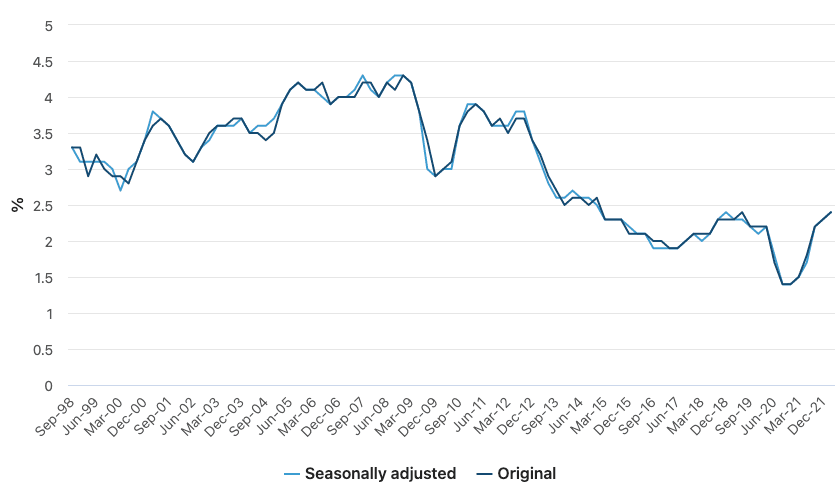Australian Dollar: Wages Data Rules out 50 bp Hike says Analyst
- Written by: Gary Howes

Image © Adobe Stock
Australian Dollar 'bulls' might be in for some disappointment: wages in the country are not growing fast enough to prompt the Reserve Bank of Australia into a series of aggressive rate hikes, according to analysts.
Australia released wage data for the first quarter on May 18 and the figures disappointed against market expectations: the headline Wage Price Index rose 2.4% year-on-year in the first quarter, up a touch on the previous quarter's 2.3% but below the market expectation for 2.5%.
On a quarter-on-quarter basis the Wage Price Index rose 0.7% says the ABS, unchanged on the previous quarter and disappointing against the market's expectation for 0.8% growth.
The Reserve Bank of Australia (RBA) has long made the case that it prefers raising interest rates in an economy that is seeing inflation driven by strong wage gains.
Image source: ABS
Ahead of the wage data the market was expecting the RBA to deliver a further 240 basis points worth of hikes in 2022, more than any developed market central bank, meaning a hike of at least 50 basis points would be required by June.
"Today’s data is consistent with our expectation that the RBA will deliver another ‘business as usual’ rate hike of 25bp at the June Board meeting – the Q1 22 WPI has certainly not made the case for a larger rate hike in June," says economist Gareth Aird at Commonwealth Bank of Australia.
The wage data therefore leaves the market ripe for disappointment and this could in turn pose headwinds for the Australian Dollar.
Interest rate expectations are an important driver of currency valuations and there is a risk that current Aussie Dollar values are consistent with the rich RBA rate hike expectations held by the market.
The currency could come under pressure should these expectations come down,.
"The official wages data has not made the case for a larger hike. Indeed the wage price index today highlights the risk of raising rates too high and too quickly given wages have so far been slow to respond to the tightness in the labour market," says Aird.
"The Wage Price Index came in below expectations in Q1," says Catherine Birch, Senior Economist at ANZ, "this suggests the RBA is likely to hike the cash rate another 25bp in June, rather than a larger 40 or 50bp hike."
Compare GBP to AUD Exchange Rates
Find out how much you could save on your pound to Australian dollar transfer
Potential saving vs high street banks:
A$4,875.00
Free • No obligation • Takes 2 minutes
Real wages are down 1.1% year-on-year as inflation eats into pay increases, "this is a key reason for the weakness in consumer confidence," says Birch.
Private sector wages grew 0.65% quarter-on-quarter but public sector pay slowed from 0.71% to 0.56%.
The average size of private sector hourly wage rises was nevertheless the highest since June 2013.
But Birch says this was offset by a smaller share of jobs receiving pay rises.
ANZ still expects wage growth to accelerate through 2022 and 2023, although real wages will continue to fall for some time.





